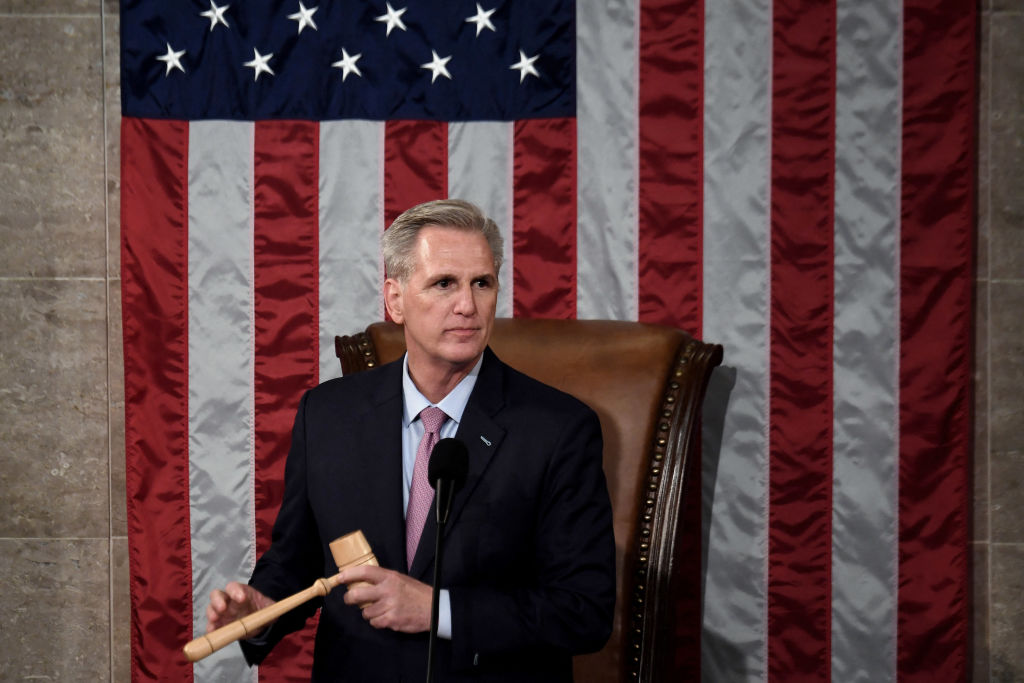It’s almost spring, and you know what that means: buds popping on the trees, birds chirping as the days grow longer, and the president introducing a budget that will be quickly forgotten.
And so it’s happened. But there have been a few interesting twists that could make this budget season more interesting than most.
President Biden wrote an op-ed for the Wednesday New York Times presenting his plan to “extend Medicare for another generation.” The piece was largely predictable: calls to raise taxes on the wealthy as a way “to increase the program’s solvency by twenty-five years.” While some fiscal conservatives welcomed the president’s willingness to raise the issue of Medicare solvency, his ideas are largely dead on arrival for Republicans.
But implicit in Biden’s words is an acknowledgement that Medicare, one of the crown jewels of the nation’s social safety net, is not on sound footing. It’s a startling admission from any president, let alone one who used his State of the Union address to goad Republicans into a public debate over the third rail of American politics.
It’s no secret that Medicare looms large over the federal budget. According to the latest projections, the trust fund that feeds Medicare Part A will be insolvent as soon as 2028, just five years from now. And while this isn’t anything new, substantive changes haven’t been made to shore up the program since the mid-1990s, and the trust fund today is as close to depletion as it was at that time.
But the trust fund isn’t the only problem. As health care costs continue to rise, other parts of the program are also presenting increasing strain on the federal budget. Spending on healthcare reached a record high during the Covid-19 pandemic, and now accounts for nearly one fifth of US gross domestic product. That spending is projected to rise further during the next decade, and is a key driver of the worsening budget outlook put out by the Congressional Budget Office.
Nonetheless, House Speaker Kevin McCarthy has said that cuts to Medicare are “off the table,” and it’s hard to imagine Republicans accepting Biden’s tax increases as an alternative way of saving the program. Even Senator Rick Scott, who last year introduced a blueprint to “Rescue America” that included cuts to entitlement programs, has been forced to walk back his original proposal.
Instead, McCarthy has joined with conservative activists in a call to slash long-time conservative bugaboos like foreign aid, food stamps, federal housing, and disability benefits. Many Republicans also support cuts totaling $150 billion to so-called “woke” spending. Of course, the prospects for balancing the budget by eviscerating non-defense programs that account for less than 16 percent of spending is nothing short of laughable.
Some members remain convinced that, in the wake of Donald Trump, the Republican base still pines for fiscal responsibility, but even the most outspoken deficit hawks seem unwilling to stick out their necks on entitlements. Perhaps former House speaker Paul Ryan’s new book will give them the courage.
For now, it’s unclear how Republicans actually plan to appeal to voters other than swiping at President Biden’s latest $6.8 trillion budget and hoping something sticks. But once this season passes, there are many more fiscal battles still on the horizon.
The debt ceiling fight could rear its ugly head as early as June, with Republicans prepping legislation to enable debt payment prioritization should an effective default become a reality. And let’s not forget about all of the other priorities — appropriations, the next defense authorization, and the quinquennial farm bill — which all will be on Congress’s doorstep before they know it.
No doubt budget policy is back with a vengeance — it’s one of the hottest issues on the political scene for perhaps the first time since the Obama years. But while it’s made this spring more interesting than usual, that’s not necessarily a good thing. After all, telling someone you hope they “live in interesting times” isn’t meant as a blessing.

























